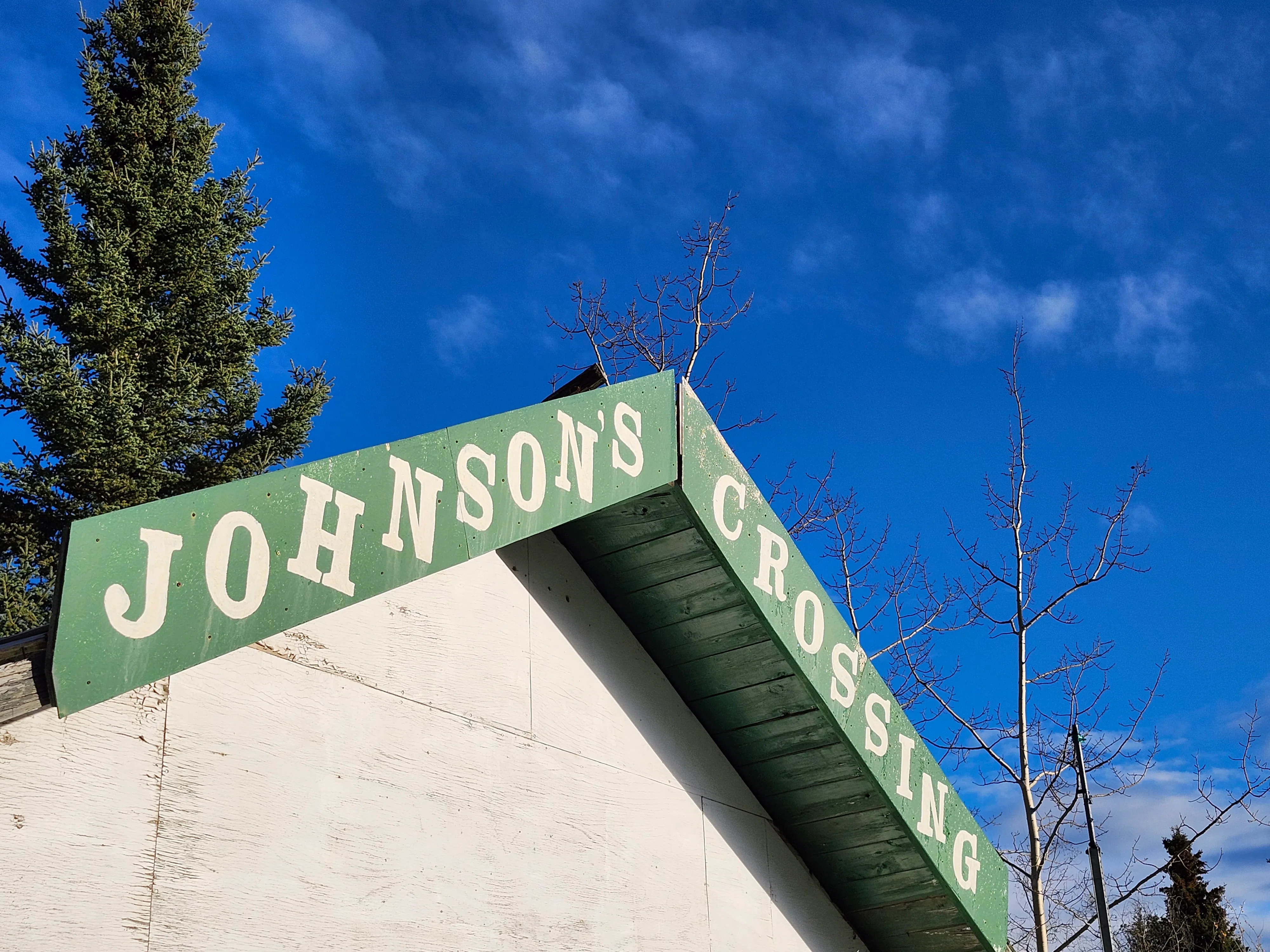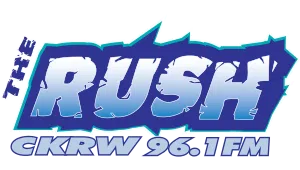
A sign near the Johnson's Crossing Lodge where the waste transfer station was recently closed. Photo Courtesy of Macklen Linke/CKRW.
Whitehorse, YT – Today marked the final closure of waste transfer stations for three of four rural Yukon communities in a move that the Yukon Government claims will modernize how the territory handles garbage but many residents say the government turned a deaf ear to their concerns leaving them feeling ignored and left out.
Although Keno City’s transfer station closed previously, the transfer stations in Braeburn, Johnson’s Crossing and Silver City closed on October 1st.
The Yukon Government plans to redistribute money saved from the transfer stations to other nearby regional waste management facilities. They’ve also entered into landfill agreements with several municipalities including Dawson City, Watson Lake and Haines Junction.
Pat Wiens, a longtime resident of Johnson’s Crossing, isn’t sure what to do about her garbage now that the transfer station is closed because she will now have to take a 130-kilometer round trip to dispose of their garbage at the waste management facility in Teslin.
“We’ll probably store garbage in our garage,” said Wiens. “I know they’ve offered us a bearproof bin, but you still are going to put it in a bin in your yard, and you’re going to have to take stinky garbage out of this bin and put it in your car and drive it somewhere.”
Although the Yukon Government offered bearproof bins, an annual cleanup day and funding to help set up a recycling centre Wiens says that doesn’t help with the daily garbage.
Wiens was one of many residents that pushed the Yukon Government to reconsider the move which they argue will mean an increase in illegal dumping and more bear encounters.
Wiens says the few meetings that the Government held with residents felt insincere with little consideration being given to residents.
Yukon Party MLA for Johnson’s Crossing Stacey Hassard, also voiced concern in a July 24th press release that residents were being ignored.
“Residents at the meeting also presented alternative service options,” reads the release. “Unfortunately, the government chose to disregard both their concerns and proposed alternatives and did not provide an explanation as to why.”
Wiens said many residents offered their own research on cost-reduction strategies to keep the station operational with an alternative plan for a volunteer-run system to manage the transfer station. Wiens said they were not given Yukon Government feedback.
I’ve lived here almost 50 years,” said Wiens. “As a rural resident, I really thought the government wanted to hear from its people, and that probably shocked me the most.”







